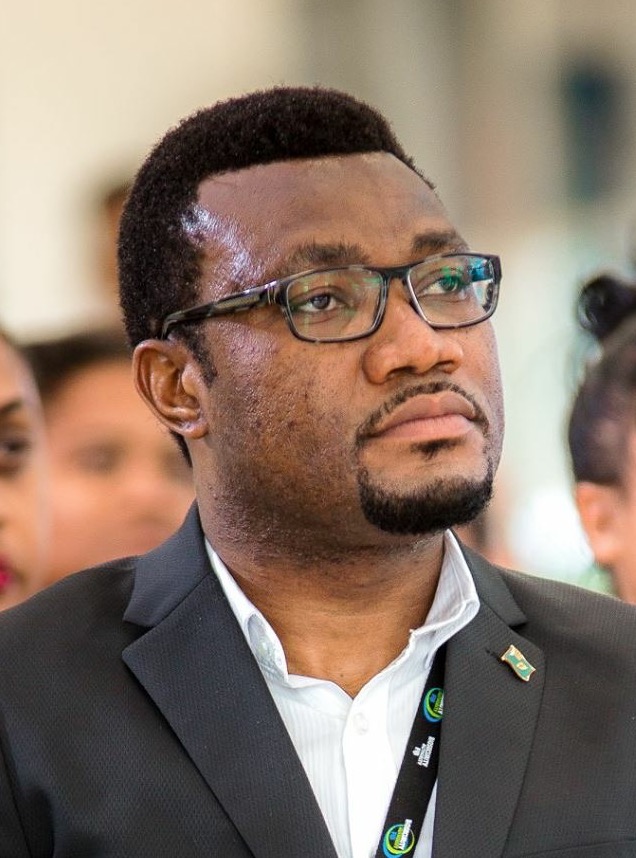 Hillary Kumwenda
Hillary Kumwenda
Chief Executive Officer
Biosecurity Authority of Fiji
Public Policy Program (’11)
Please tell us about your career path so far. What is your area of specialization and how did you come to work in this area?
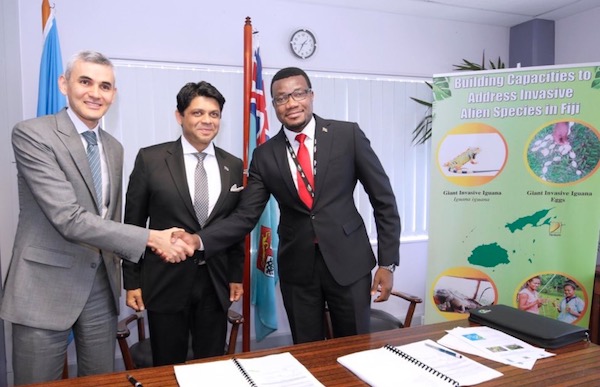
Signing ceremony of the Global Environmental Facility with the UNDP Country Director and the Fijian Attorney-General and Minister for Economy
My area of specialization is international trade policy, biosecurity, competition and consumer protection policy, investment and industrial policy as well as economic development.
After graduating from the University of Zambia with a Bachelor of Arts in Economics, I joined the Zambian Ministry of Commerce, Trade and Industry in September 2005 as an Economist in the Department of Foreign Trade and gradually rose through the ranks to the position of Acting Chief Economist and Head of Competition and Consumer Protection Tribunal Secretariat. I was also appointed as part of the Government negotiating Team on Investments.
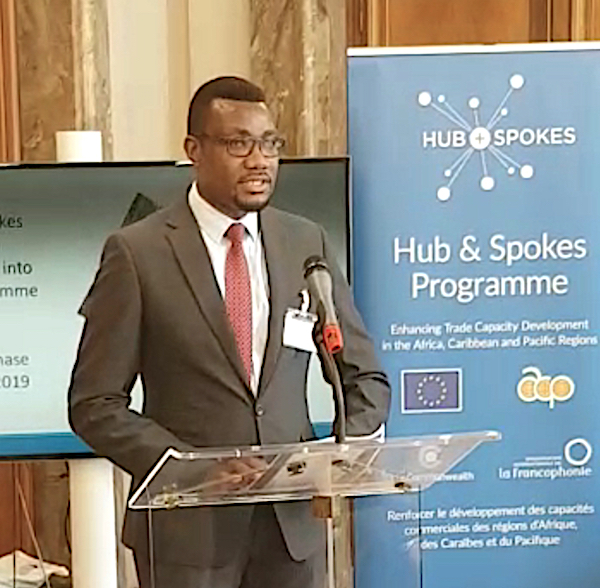
Speaking at the Aid for Trade Global Review in 2017 at the World Trade Organization, Geneva, Switzerland
I undertook various specialized training in the area of regional and multilateral trading system and in 2008 I also obtained a Diploma in Trade Policy in Geneva, Switzerland at the World Trade Organization (WTO) Institute for Training and Technical Cooperation. Due to my contribution to the Zambian economy, in 2010, I was extremely fortunate to be chosen by the US State Department and invited to the United States of America for the prestigious International Visitor Leadership Programme. In 2010, the same year, I enrolled at GRIPS and graduated with a Master of Public Policy specializing in Economics a year later.
Whilst working in the Department of Foreign Trade as well as heading the Competition and Consumer Protection Tribunal Secretariat as its chief executive, I started teaching International Trade to final year economics students and Trade Policy and Development, which was supported by the WTO at the University of Zambia, the highest learning institution in Zambia. In addition, I was dissertation supervisor and teaching Competition Law and Regional Economic integration at the University of Lusaka which is one of the prestigious private universities in Zambia.
In 2014, I joined the Commonwealth Secretariat Hub and Spokes Programme as Trade Adviser and was attached to the Fijian Government in the Pacific.
You are currently serving as Chief Executive of the Biosecurity Authority of Fiji. What are your main roles and responsibilities?
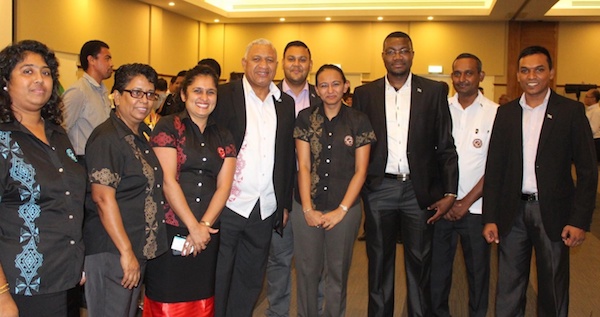
Launching of the Fijian Trade Policy Framework in 2015 with the Fijian Prime Minister and Staff of the Ministry of Industry, Trade and Tourism
In my current role I am responsible to the Board for the efficient running of the Authority and the administration of the Biosecurity Act 2008. I also provide strategic leadership for the Biosecurity Authority of Fiji as a Statutory Authority by working with the board of directors and the executive management team to formulate and implement long-range goals, strategies, plans and policies.
I am also charged with overseeing the complete operation of the organization in accordance with the direction established in the strategic plans. This includes the design of the organization in a manner that facilitates and supports the operations. And finally, I represent Fiji in international standard setting body organizations such as IPPC and OIE as its Official Representative, WTO Sanitary and Phytosanitary Measures (SPS) as the National Notification Authority and Enquiry Point as well as ensure adherence to Fiji’s international obligations.
In your current capacity, what do you see as the main opportunities and challenges for Fiji’s biosecurity management in the mid and longer term?
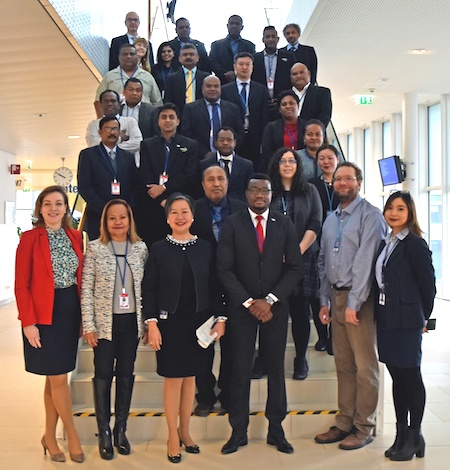
At the United Nations International Atomic Energy Agency (IAEA) in Vienna, Austria, 2019
The main challenges are that transboundary pests and diseases have become common globally and continue to pose serious threats to the biodiversity of the country. This requires enhanced surveillance systems as an early warning system to ensure early detection of any exotic s and diseases. This increases the chance of intercepting these biosecurity threats thereby eradicating them before they could spread and establish in the country.
In this way, we ensure that we protect the country and maintain a favorable disease and pests status of the country which is essential to preserve the export pathways for Fijian exports to the rest of the world. This also acts as a catalyst to promote investment into the country especially in the agro-processing export oriented sectors.
What are some of the biggest challenges you face in your work? And what have been the most interesting or rewarding aspects of your career thus far?
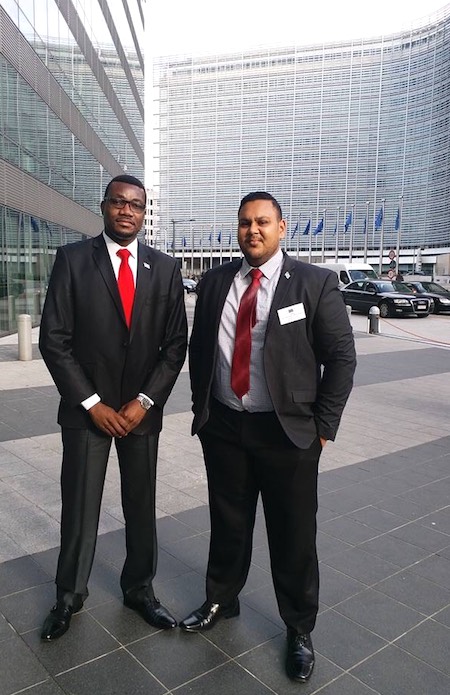
At the European Commission in Brussels attending the ACP-EU Joint Ministerial Trade Committee meeting with the Fijian Principal Economist Mr. Kartik Pratap
The biggest challenges are that biosecurity is a very sensitive area as it sits at the core of environmental and socio-economic status of the country. And a good number of stakeholders have little appreciation of the ramifications for the country if biosecurity is not given due consideration. As a regulatory agency, sometimes our actions are found to be too extreme but from the biosecurity point of view, appropriate preventative measures are necessary to the extent possible that it addresses any biosecurity threat or emerging threat without constraining the business activities of stakeholders. However, when the threat or risk is too great and unacceptable, appropriate level of intervention is applied even if it means destroying the articles or cargo completely. So it is essential that there is a fine balance between these two issues without compromising the biosecurity of the country.
The most interesting and rewarding part is that there is always room to create awareness and forge partnerships with key stakeholders both locally and internationally. Another interesting aspect is that since biosecurity touches on most sectors of the economy, it is always fulfilling to see the positive impact it makes on the growth and transformation of the economy.
Where do you see yourself in 10 years time?
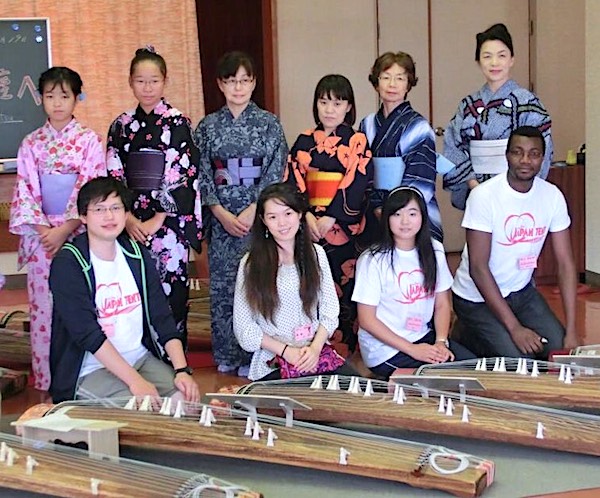
Playing koto during Japan Tent 2011, a famous international exchange event held in Ishikawa Prefecture
I see myself contributing immensely and making positive contributions to global stability and sustainable growth as a global citizen.
What led you to GRIPS? What is the most important thing you got out of your studies here, and how has your experience at GRIPS prepared you for future endeavours?
What led me to GRIPS was the fact that whilst working in Zambia, graduates that came from GRIPS were high performers and achievers and had a certain level of competency that was superior in many ways. In a way I was influenced and challenged by those factors. I ended up researching much more about GRIPS and was attracted to the MP1 and Policy Analysis Programs. The time I was being accepted into GRIPS, I already had other admissions in the United Kingdom and Netherlands with scholarships but the pull factor towards GRIPS was much stronger and I have never regretted my decision.
The experience at GRIPS has indeed prepared me well for the future through quality education while the multi-cultural setting prepared me to live and work in any country and culture without any problems.
Have you had any involvement, professional or otherwise, with Japan since your graduation?
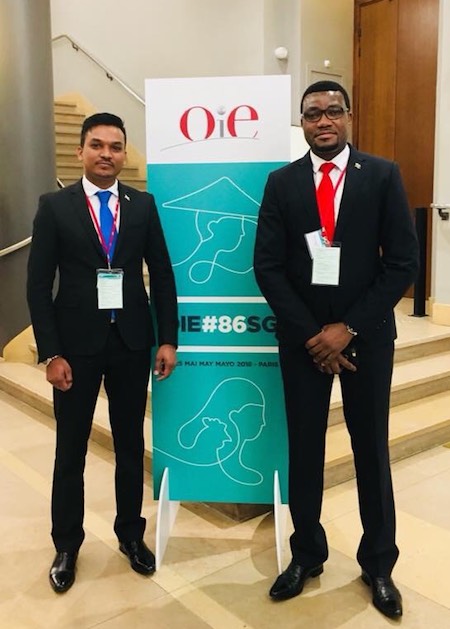
At the World Organization for Animal Health (OIE) World Assembly of Delegates, Paris, France 2018 with the First Secretary at the Fijian Embassy in Brussels, Mr. Shanil Dayal
My involvement has been very minimal, merely by belonging to the GRIPS Alumni network and in-country annual events organized by the Japanese Embassy for MEXT Scholars in Lusaka, Zambia. Given a chance, I would like to be involved much more in professional activities.
You have been living outside Zambia for a quite a few years now. What do you miss about Zambia and what do you like about living in Fiji?
Zambia will always be home and I do miss people and lifestyle as it is very unique in its own special way. I also miss other things that ordinarily I used to take for granted. However, growing up in such a beautiful country and environment also prepared me for a life outside Zambia as a global citizen.
With respect to Fiji, I like the island way of life, which is totally different from the ordinary life in bigger and larger countries. The other aspect I like about Fiji is that people generally are nice and friendly. Fiji is like home away from home and will forever be a part of me as I have forged a permanent relationship with Fiji and my life will never be complete without the Fijian DNA.
How do you maintain a balance between your work and the rest of your life? And what is your favorite thing to do when you are not working?
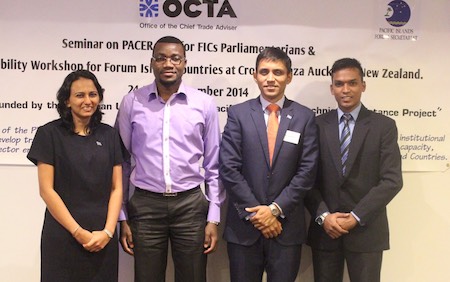
At the Pacer Plus trade negotiations in New Zealand with the Fijian Permanent Secretary Mr. Shaheen Ali and staff of the Ministry of Industry, Trade and Tourism
It has been very challenging to strike a balance between work and the rest of my life due to the nature of work and position I hold as it is very demanding.
The favorite thing I do if am not working is spending time with my family, watching TV, going for walks or the gym, playing tennis and occasionally going for weekend movies and sightseeing.
What are some of your fondest memories of your time spent at GRIPS? And what do you miss about Japan?
GRIPS has created a very conducive environment for students from all walks of life and diverse cultural background. GRIPS staff were kind and excellent and would go out of their way to serve the students. The Administration and Academic Support Team were excellent and always put the interest of students first. It would be a great pleasure to study again at GRIPS should they introduce a flexible learning system e.g. PhD distance programmes.
If you could give one piece of advice to anyone considering studying at GRIPS what would it be?
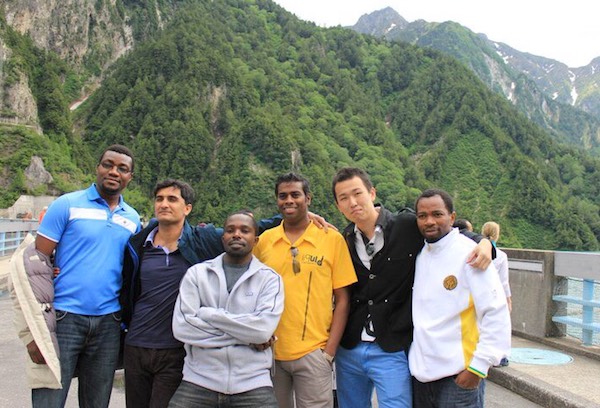
During GRIPS cultural tours around Japan 2011
If you want quality and more impactful advanced studies, GRIPS is a place for you. The GRIPS alumni network is a repository of living testimonies of how GRIPS produces men and women who have ascended to greatness in different fields.
How would you like to maintain involved with the School? What do you expect from GRIPS as an alumnus and do you have any suggestions on how to further utilize the GRIPS alumni network?
I would like to be involved in providing talks to current students as a visiting or guest lecturer to bridge the gap between theory and practice. In that way, I would also be contributing back to GRIPS being a living testimony of former GRIPS students.
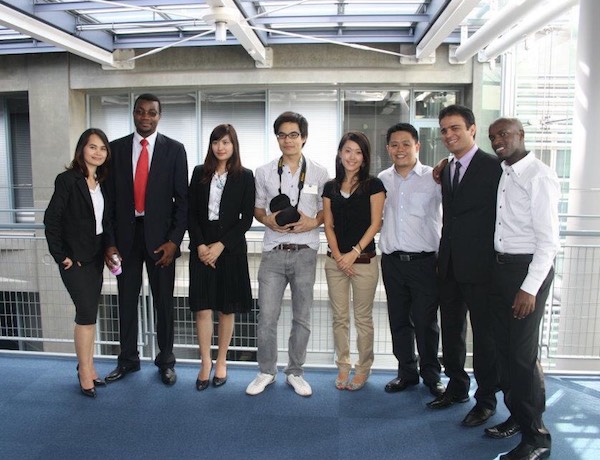
At GRIPS with colleagues
The alumni network is very active in its current form thanks to the active engagement of the GRIPS Alumni Office. However, I would like to suggest that GRIPS encourage in-country alumni annual meetings as an extension of the virtual alumni network coordinated from Tokyo.
It would also be valuable if the GRIPS Alumni Office could advocate for a deliberate policy to encourage former GRIPS Students to contribute towards research or policy brief publications on the GRIPS platform on emerging global topical issues.





